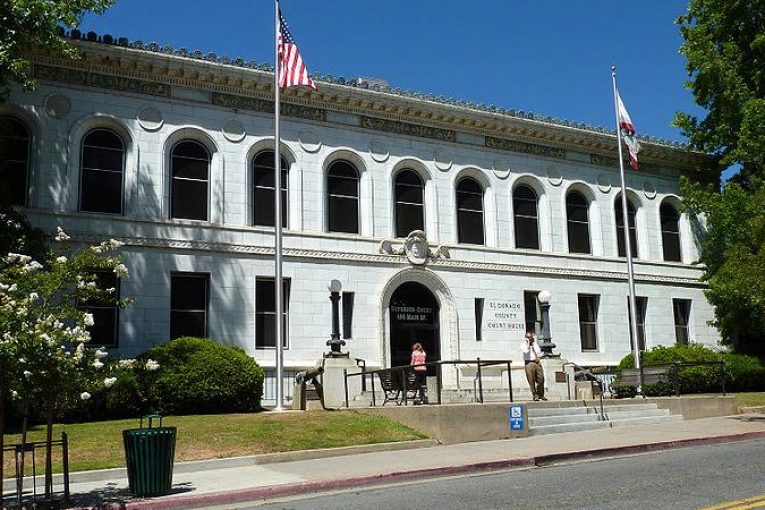

By David M. Greenwald
Vanguard Executive Editor
SOUTH LAKE TAHOE, CA – It’s a case that has much notoriety, going forward to the appellate courts on the issue of SB 1437, a law that modifies the state’s felony murder law.
And, on Friday, Harvest Cycle Davidson was back in El Dorado County Superior Court in South Lake Tahoe, facing charges from the January 2016 robbery that turned into a murder.
Defense Attorney Hayes Gable, appearing via Zoom from Placerville, is representing Davidson. The prosecutor is El Dorado County Deputy Cast Mandrell.
Gable told Judge Suzanne Kingsbury, “We’re not ready to set a trial at this point. We have just requested from the district attorney a large amount of discovery—pages that are missing.”
He said that he has been talking with the DA, who at this point is not sure “if this is lost discovery” or a “mix up in terms of who got what originally.
“Apparently the discovery was dispersed in such a manner that everyone got something different,” Gable said.
He said that they will need to sort out the matter and once they sort out the discovery, they will need some time to go through the thousands of pages.
“If there’s issues with production, then motions,” Gable added.
Judge Kingsbury was quick to defend the prosecution, stating, “I have never had an issue with Mr. Mandrell not producing discovering in a timely manner—so I wouldn’t anticipate the need for a motion.”
Mandrell was immediately defensive as well, noting, “I am not trying to play hide the ball here. My number one goal as a prosecutor is to make sure that your client receives a fair trial and make sure that you have everything that I have.”
He added, “I don’t necessarily appreciate the tone, counsel, but I will make sure you have everything in this case.”
Mandrell added, “I will make sure you have everything before we try to force you to go to trial.”
The case reached a level of notoriety before it even went to trial on the facts. Initial defense attorneys challenged whether murder charges under felony murder law should apply in this case.
In January 2016, the victim brought 100 pounds of marijuana to the Beverly Lodge hotel in South Lake Tahoe, with plans to sell it. When the buyer pulled out, two men attempted to rob them in the parking lot and the victim was shot and killed.
The police ended up arresting a host of people, including Harvest Davidson.
Davidson was charged with murder even though he was not a direct participant in the murder. DA Vern Pierson, the head of CDAA (California District Attorneys Association), filed murder charges under the felony murder law at the time.
But in 2018, the state legislature rewrote the felony murder rules under SB 1437.
Under that law, prosecutors have to prove one of three elements: that the person was actually the killer, or that they aided and abetted the actual killer with the intent of helping kill someone, or they acted as a major participant in a felony crime with reckless indifference to life.
Pierson led the way in arguing the law was unconstitutional, but then CA Attorney General Xavier Becerra in a motion argued that SB 1437 was constitutional even though his office disagreed about its applicability here. But state courts have thus far upheld the law.
That legal maneuvering played a role in the length of time since the incident in January 2016 and the case finally moving toward trial now.
Standing in the way, however, is 4,000 pages of discovery production. The issue came up in February and DA Mandrell offered a somewhat different explanation of the delay, but five months later there appears to be no resolution to the discovery issue.
Mandrell acknowledged that prior to the preliminary hearing, in order to keep a key informant Tristan Batten’s name secret as a cooperating witness, he said that different batches of discovery were sent to different defendants.
He then said, “I don’t know if that’s something excised or something actually missing in this case.”
Mandrell said his clerks are going through this, but “it will take a decent amount of time in order to do that.”
What’s a decent amount of time, Judge Kingsbury asked.
“Sixty days minimum,” Mandrell responded.
The judge set the hearing for October 1.

